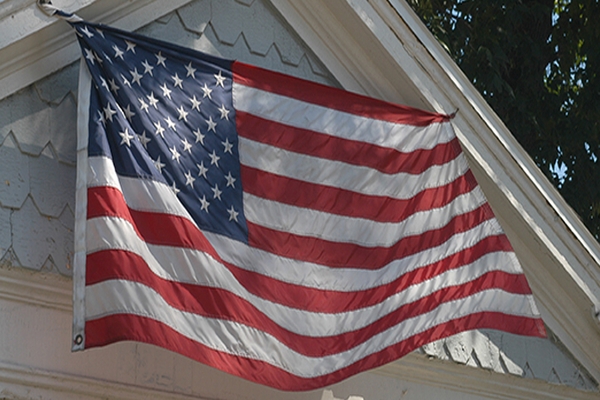University Libraries

This Way to Voter Information
By Lucy Fisher
"Nobody will ever deprive the American people of the right to vote except the American people themselves and the only way they could do this is by not voting." - Franklin Delano Roosevelt, 32nd President of the United States
Voting is one way to make your voice heard in today’s busy world, but how do you make sure your decision reflects what you really want? How do you find resources to make your decision? Roesch Library is here to help!
If you’re voting in Ohio and would like more information about voting, candidates, the election calendar or results, visit http://www.sos.state.oh.us/elections.aspx.
If you’re from out of state and are curious about how and when to vote, try http://www.canivote.org or http://www.vote.org. You can also check your registration status and request an absentee ballot if you cannot vote on election day at http://www.vote.org.
Launched by the League of Women Voters Education Fund in October of 2006, http://www.vote411.org is a “one-stop-shop” for election related information. It provides nonpartisan information with both general and state-specific information on absentee ballots, early voting options, election dates, factual data on candidates, ID requirements, polling place locations, registration deadlines, voter qualifications, registrations forms, voting machines, and much more.
If your head is spinning with all of the interviews, debates, and information, check in with http://www.factcheck.org. FactCheck.org is a nonpartisan, non profit, consumer advocate for voters that aims to reduce confusion in the political landscape. FactCheck.org monitors the factual accuracy of what is said by major U.S. political players in the form of TV ads, debates, speeches, interviews and news releases. FactCheck.org is a project of the Annenberg Public Policy Center (APPC) of the University of Pennsylvania. The APPC was established by publisher and philanthropist William Annenberg to create a community of scholars within the University of Pennsylvania that would address public policy issues at the local, state and federal levels.
Speaking of TV ads, the money spent by political candidates may be interesting to you. If so, visit http://www.fec.gov where the Federal Election Commission (FEC) administers and enforces the Federal Election Campaign Act. The duties of the FEC are to disclose campaign finance information and their site provides easy-to-navigate maps and charts that display whatever finance campaign information that interests you.
Finally if you’re dumbfounded by the Electoral College process, visit https://www.archives.gov/federal-register/electoral-college/about.html. The National Archives and Records Administration has information and a video to help educate you about who makes up the Electoral College and how the process works.
Don’t forget to get out and vote! Whether you need to vote an absentee ballot, decide to vote early or vote on election day, Tuesday, November 8th, be sure to exercise your right to make your voice heard.
- Lucy Fisher, Course Reserves Specialist
